Questioni am a new russian tortoise owner..today !! 11/18/2012..i bought a pair from Pet Smart amherst new york There is a 14 day guarentee
One of them has an uneven pattern of scutes, not uniform in shape on its back.one square is a little uneven in shape and size ,more rectangular than other scutes..they are maybe six months old..both look like males so far...building a tort table, for a week they are in large green tub..right lights, food etc..don't want to disturb now, but will send picture upon request..if not a sign of illness,I don't care if he is not perfect.-)..they are so darn cute...too soon to tell how good of eaters they are..just brought home today i have done a few months of on line and book research and want to be a good mommy !! Thanks
AnswerHI Laurie,
Russians are great little tortoises and quite hardy if kept correctly. I'm concerned that you were probably given some incorrect information at Petsmart, so it might be a good idea to go over care with you.
First of all, your tortoises are not six months old, no matter what you were told. This is a common issue with Petsmart and Petco--they seem to tell everyone their Russians are captive bred and six months to a year old, but it's simply not true and unfortunately shows how little they know about the species. Their tortoises are all wild caught adults/sub-adults. A six month to year old Russian weighs 50-100g and is about 2.5" long, whereas the Russians in the pet stores weigh about 359-400g. If you know Russians, there's just no way to confuse the two. There's no way to know exactly how old your tortoises are, but likely at least five years old, and possibly quite a bit older.
Building a tortoise table is a great idea. Two Russians should have a decent amount of space, and having an outdoor pen for summer is even better. They are very active little guys, and grazing outdoors is very good for them. For indoors, use a substrate of 50/50 coir and playsand. You do need to keep it a little damp at all times, so your table should be either waterproofed (you can use water-based polyurethane) or lined with heavy plastic, vinyl flooring, etc. Check the substrate every few days to see if you need to add water. The moisture is very important because the basking light is very drying and dehydration is a big problem. You can check their hydration level by keeping an eye on their urates (the white excretions with their pee). If the urates become gritty rather than soft and creamy, they need more moisture and more soaking.
You need both basking and UVB. The best way to provide is is in a combination heat/UVB bulb. I would use a ZooMed Powersun 100 watt bulb. The other combo bulbs are the market are unreliable and I can't recommend them. Monitor the basking temp for a few days to make sure you're getting around 90 degrees.
Russians are herbivores and should be fed a diet of leafy greens and weeds; ideally lots of weeds if you can get them. Turnip and mustard greens, collards, kale, spring mix are all good grocery greens. Romaine is OK, too, but lettuces should be limited because it's not that nutritious. Dandelions, chicory, sow thistle, mallow, clover, chickweeds, plantain, and hawkbit are great weeds. Sow thistle and dandelion flowers are special favorites of my tortoises. Don't feed veggies, fruit, or any pellets. Put a cuttlebone int the enclosure for them to nibble on as needed, and you're pretty much set.
Any scute deformities really aren't a problem. Typically they are due to environmental issues while in the egg, but aren't an indication of any health issues. However because your tortoises are wild caught, it's very likely they have parasites and potentially respiratory infection, etc. Keep a close eye on them for the next week. Make sure they're both active and eating, and watch for signs such as wheezing, runny nose, gaping/yawning, and stretching the neck out constantly. If there is lethargy and lack of appetite despeite correct setup, they may need a fecal check and parasite treatment. Activity is a good sign, though. Try not to handle them too much so they can settle in.
I hope this has helped! if I can answer any other questions, or help in any way, please post back. : )

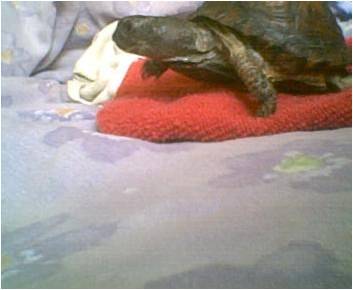 type of box turtle
QuestionQUESTION: i know she is a box turtle but i thou
type of box turtle
QuestionQUESTION: i know she is a box turtle but i thou
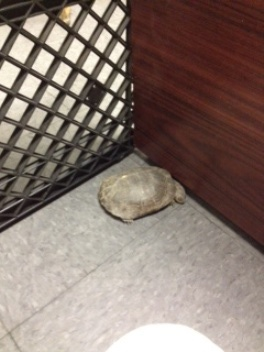 turtle id
Question
turtle id
hello, i would like to know w
turtle id
Question
turtle id
hello, i would like to know w
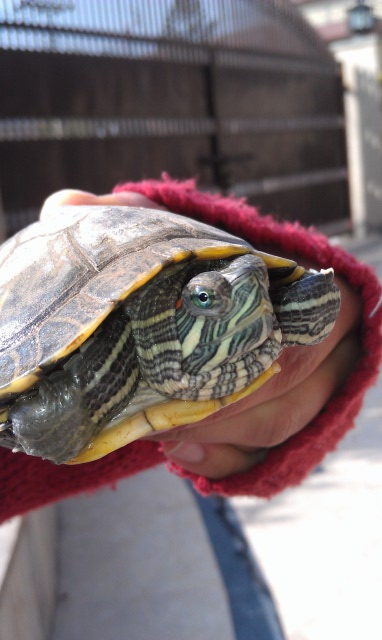 Turtle Blisters
Question
See the left leg See the left leg
Turtle Blisters
Question
See the left leg See the left leg
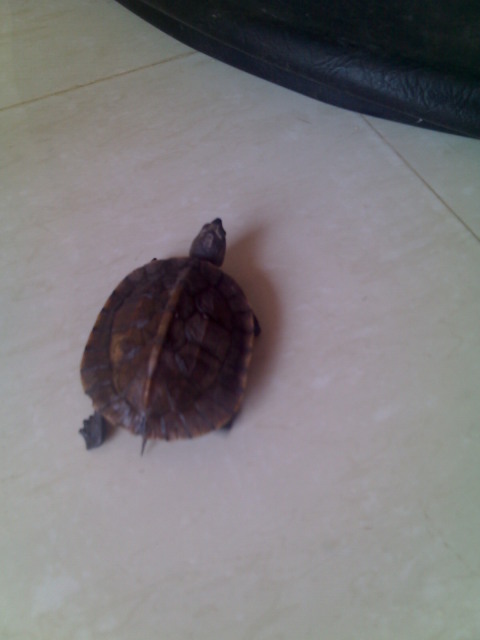 How do I care for an Indian Black Turtle (Melanochelys trijuga)
Question
Pic of the turtle
Hi,
I am am animal lover li
How do I care for an Indian Black Turtle (Melanochelys trijuga)
Question
Pic of the turtle
Hi,
I am am animal lover li
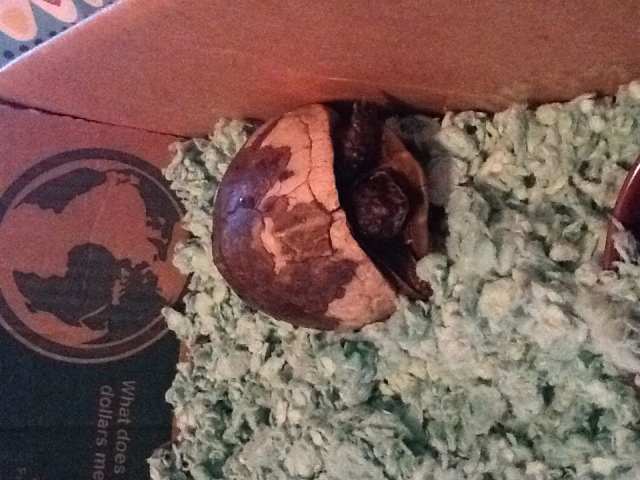 tortoise not eating
QuestionQUESTION: my turtle is not eating and its Febru
tortoise not eating
QuestionQUESTION: my turtle is not eating and its Febru